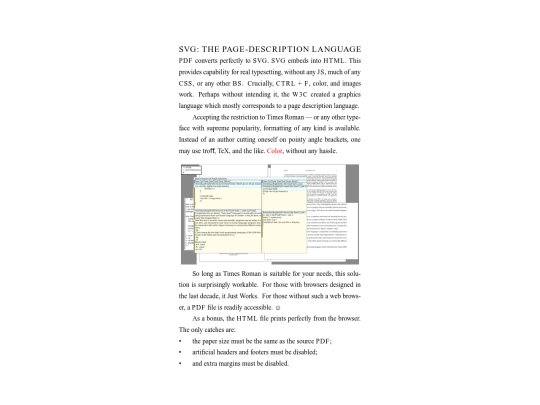Neocities.org

 iwillneverbehappy
1 year ago
iwillneverbehappy
1 year ago
This is a great start :) As mentioned in the post, even people experienced with systems have trouble with it. And thank you for the comment, I've always loved your website (every once in a while, I go and check your "appreciated" page, it's wonderful)
 kaa
1 year ago
kaa
1 year ago
and then people who value their time can afford to keep a computer for a decade instead of 3 years.
 kaa
1 year ago
kaa
1 year ago
I own and occasionally use a 12 year-old laptop. The keyboard on it is great, and the touchpad is much better than the modern ones. Opening three heavy web sites at the same time causes disk swapping.
 mikegrindle
1 year ago
mikegrindle
1 year ago
Thanks, appreciate you reading. Unfortunately, I don't see any such slowdown becoming the norm, but we can still strive for better. They really don't make keyboards like they used to, right? I always work my tech into the ground but I don't think I've hit the 12-year mark before. My current laptop is about 6-7 years old and doing okay (with a lightweight Linux).
 mikegrindle
1 year ago
mikegrindle
1 year ago
Currently using Peppermint OS with Awesome WM. Linux Mint Xfce is brilliant if your hardware isn't too old. AntiX is a good choice if its ancient.
 owlroost
1 year ago
owlroost
1 year ago
To add more lightweight options: quite a few people I know swear by Alpine as a lightweight choice. Void is popular if you prefer rolling release. Debian can be light if you set it up that way and has the added perk of very slow updates.
 nohappynonsense
1 year ago
nohappynonsense
1 year ago
thanks owl, i'll look into alpine as well. i use ubuntu on my regular set up cuz i'm a normie, but i do want to revive some ancient chromebooks with something very light
 kaa
1 year ago
kaa
1 year ago
Alpine is great. It uses musl libc https://musl.libc.org/, which uses much less memory than GNU libc https://www.gnu.org/software/libc/. My 12-year old laptop boots it in 30 seconds, and I've only beaten that metric using a purpose-compiled kernel on a source-based distribution https://kisslinux.org/. It requires some technical know-how, however documentation is readily available https://wiki.alpinelinux.org/wiki.
 kaa
1 year ago
kaa
1 year ago
I'm using it for my English101 research paper. Here's what I've got so far. https://kaa.run.place/English101/research.pdf
 kaa
1 year ago
kaa
1 year ago
Yes, that could work. I may spend a paragraph explaining the relative failures of competitors, such as Forth, and Lisp, and APL.
 kaa
1 year ago
kaa
1 year ago
Taketwo: I've got the tools to do that. I'm currently renting a domain from godaddy.com, which provides an API to create sub-domains. I've got a VPS connected to that domain. However, somebody else has already done this project. https://tilde.institute/stats All they're missing is a pretty interface.
 kaa
1 year ago
kaa
1 year ago
New and Improved: the singular dependency, `libhyphen', is included in-tree. The build path is now compiled in to the program without manual intervention. Compiling on Windows is as simple as installing a compiler, a shell, and then running `make win/hyp.exe'.
 kaa
1 year ago
kaa
1 year ago
I went looking for web sites which use `text-align: justify', however the lack of consistent hyphenation seems to have caused aversion from it. Since this is a chicken-and-egg problem, a web page I have written with justification in mind is provided in the `demo' directory, before and after hyphenation.



































































You admit, "[t]his may mean nothing in the grand scheme of things." Computer scientists working in Java, Python, or C# hardly need to care what a syscall is. The Tiobe Index confirms these as 3 of the top 5 most popular general-purpose languages, some 27% of the market.
See https://www.tiobe.com/tiobe-index/.
You make a good point about the paradigm shift from assembly languages -> abstracted languages. But it's definitely interesting to see how this shift affects (admittedly specific instances of) CS curricula. Compilers and computer architecture courses seem to have gone down a similar path, so I wonder how the general CS curriculum will look 5, 10 years from now. Anyways, thank you for the thoughtful reply :-)